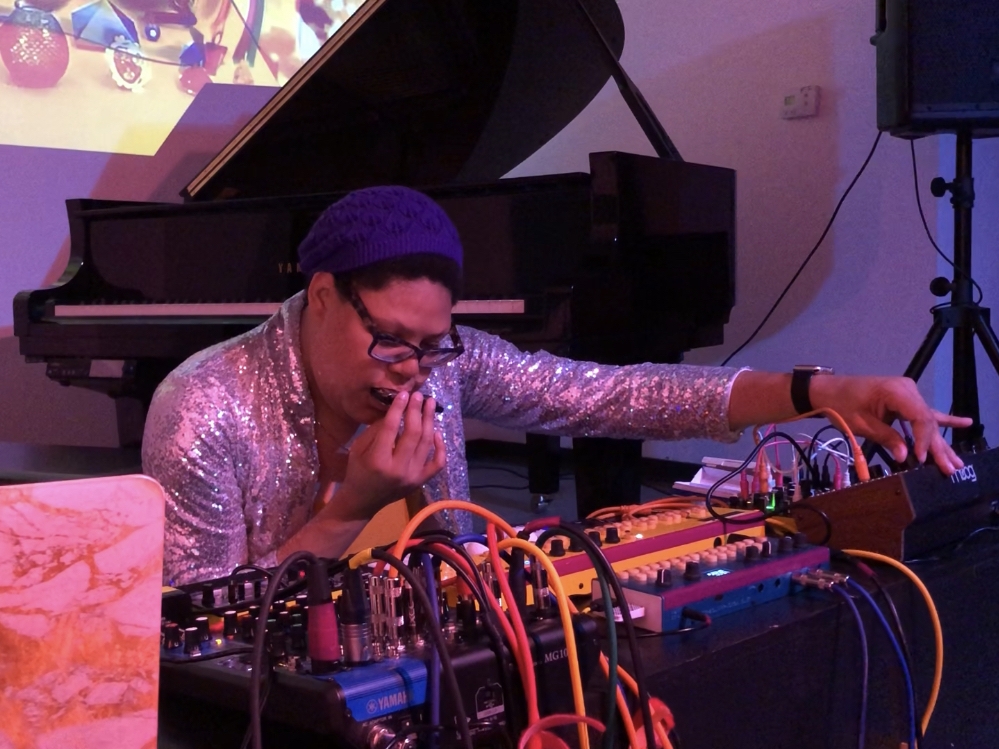Photo: Charlotte Suarez
This article originally appeared in Issue 43:2 (Nov/Dec 2019) of Fanfare Magazine.
Quadrivium • Elizabeth A. Baker • AEROCADE 008 (118:00)
Elizabeth A. Baker, based in St. Petersburg, Florida, refers to herself as a “New Renaissance Artist,” which means in part that she works in a variety of forms and media. A 16-page zine accompanying this release includes her poetry and art, and it helps to put her work in a broad perspective. It also includes a “Manifesto” in which Baker decries exclusivity in the presentation and dissemination of modern concert music (and art in general), and in which she observes that such exclusivity can be created unintentionally by well-meaning promoters who try to attract new audiences with “trendy” or “curated” experiences. This resonates with me, and not just because “curated” has lately become my least favorite buzzword! “Art,” she writes, “belongs to all mankind.” Right on.
Baker, who is now 29, is a graduate of St. Petersburg College’s Music Industry Recording Arts program; she started out as a classical guitarist before discovering her true creative voice, in which the piano plays a central role. Quadrivium is the latest of several commercial releases (available, like Quadrivium, on Bandcamp), and the most varied yet in both instrumentation and style. An early, all-piano collection is called Imperfect Improvisations for Possible Probable Ghost Listeners, and some of the music on that release sounds eerily like Debussy, or like Scriabin on Quaaludes. Quadrivium is nothing like that. Its first half, while devoted to the piano, opens with the Minimalist and tightly controlled Sashay by Nathan Anthony Corder, and continues with Baker’s own works, looser and more improvisational in style, which call for the piano to be prepared in different ways. The title Command Voices, used in two of these works, alludes to the voices heard by individuals experiencing psychosis. These voices direct them to behave in certain ways, including in ways that can cause harm to the individual or to the community. One of the implements used in these works is a vibrator—yes, that kind of vibrator. (The feminist implications of that are fascinating.) The second half is devoted to works in which electronics and spoken word feed off each other, and here Quadrivium takes on an appealingly science-fictionish vibe—a little William Gibson and a little Samuel Delany. Baker addresses social issues, such as the transactional nature of love in the digital age, and the alienation of the “silent webcrawler,” sometimes electronically altering her voice to emphasize that alienation. A recitation of URLs and IP addresses, punctuated by a slow and stuttering electronic heartbeat, is chilling. Baker is a talented composer and performer, and Quadrivium, taken as a whole, is a pretty impressive release for someone still so young. Perhaps Baker will be the Pauline Oliveros of her generation, and perhaps she will be more than that.
Quadrivium also is available as a digital download from Bandcamp, where you can buy the CD, and a separate copy of the zine, if you so desire. It’s not easy listening in any sense of that phrase, but its difficulties are anything but gratuitous. Adventurous listeners might find it to be a provocative and intriguing ride.
Raymond Tuttle


